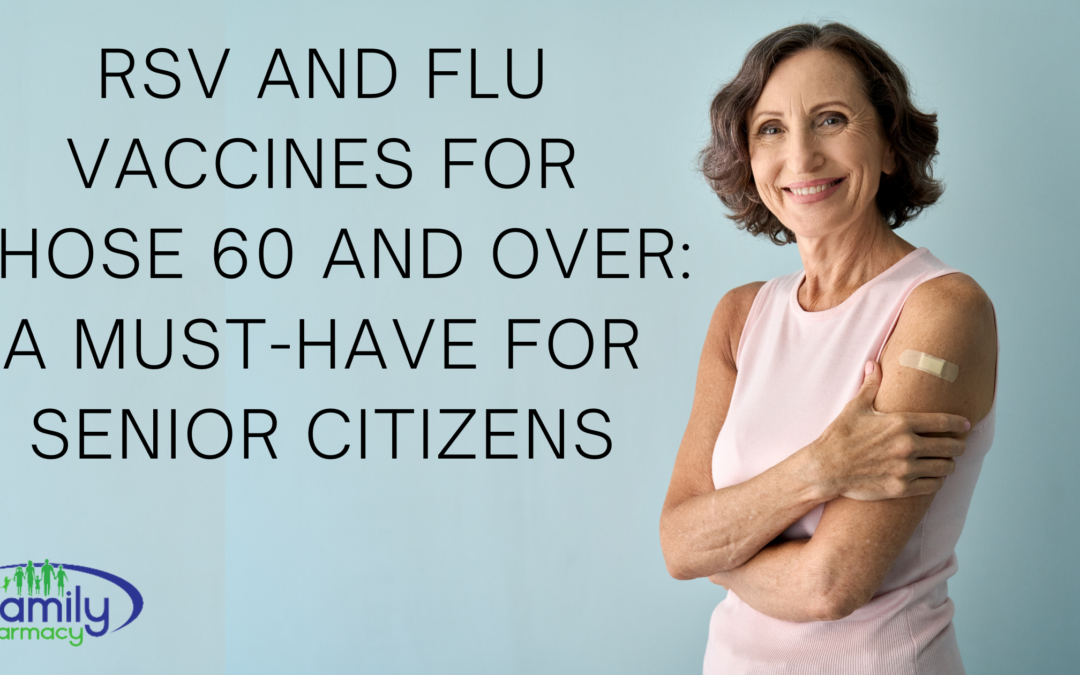With a worldwide pandemic wreaking havoc on our lives this past year, it’s important to remember that influenza viruses and other respiratory illnesses haven’t disappeared. As winter approaches, you need to protect yourself, and taking a flu shot and an RSV vaccine has proven to be the best decision for seniors, especially those above 60. In this blog post, we’ll discuss the importance of getting these protection shots, how they work, and how even those on Medicare can easily access them.
What is RSV?
Respiratory Syncytial Virus is a common virus that affects the respiratory system. In adults, it can cause symptoms similar to the flu such as coughing, sore throat, fever, and body aches. However, RSV can also lead to more severe complications like pneumonia, especially in older adults or individuals with weakened immune systems. RSV can be contagious and spread through close contact with someone who is infected.
How Does RSV The Flu Affect Seniors?
Did you know that influenza and RSV (Respiratory Syncytial Virus) are more dangerous for older adults than for young adults? Seniors are at a higher risk of developing severe RSV complications. As we age, our immune system weakens, making it harder for our body to fight off infections. Older adults with pre-existing conditions like heart or lung disease are even more susceptible to severe RSV symptoms such as shortness of breath, chest pain, and respiratory failure.
According to the Centers for Disease Control and Prevention (CDC), RSV is responsible for tens of thousands of hospitalizations and deaths in older adults each year. Influenza hospitalizes more than 200,000 people each year with influenza-associated illnesses. Besides the flu, RSV is also a common respiratory illness in older adults, which spreads through coughing or touching contaminated surfaces. The symptoms of RSV include dry cough, sore throat, and runny nose, and can last up to days. Both of these vaccinations work as a preventive measure, and getting them reduces your chances of catching these illnesses.
Why Get Vaccinated?
The RSV vaccine is not as well-known as other vaccines, but it is just as important, especially for seniors. The vaccine is designed to prevent severe RSV symptoms by helping the body build up immunity to the virus. According to recent studies, the RSV vaccine has been shown to reduce the risk of hospitalization by up to 80% in older adults. Getting vaccinated not only protects you from potential complications but also helps prevent the spread of RSV to others who may be at risk.
How Do Flu and RSV Vaccines Work?
Flu shots contain the inactivated virus, which forms antibodies in your body to fight against the influenza virus. Hence, if your body comes in contact with the influenza virus, these antibodies come to the rescue and protect you from getting sick. On the other hand, RSV vaccines contain a small part of the virus’s genetic material, which works to produce antibodies against this specific virus. As a result, the body becomes much more resistant to getting severely sick from the RSV virus.
Does Medicare Cover the RSV Vaccine and Flu Vaccine?
Good news – the RSV vaccine and flu vaccines are 100% covered by Medicare Part B for adults over the age of 65 who are at high risk for severe RSV and influenza symptoms. This means that no out-of-pocket costs will be necessary for those who have Medicare. It’s important to get vaccinated.
Conclusion:
RSV may not be a well-known virus, but it can be as dangerous as the flu, especially for older adults. Do not take a chance during this winter season! Take a proactive approach to protect yourself and your loved ones by getting a proper flu shot and an RSV vaccine. With appropriate vaccines and coverage under Medicare, there is no reason not to take proper precautions. So, what are you waiting for? Get your vaccines soon!


Recent Comments